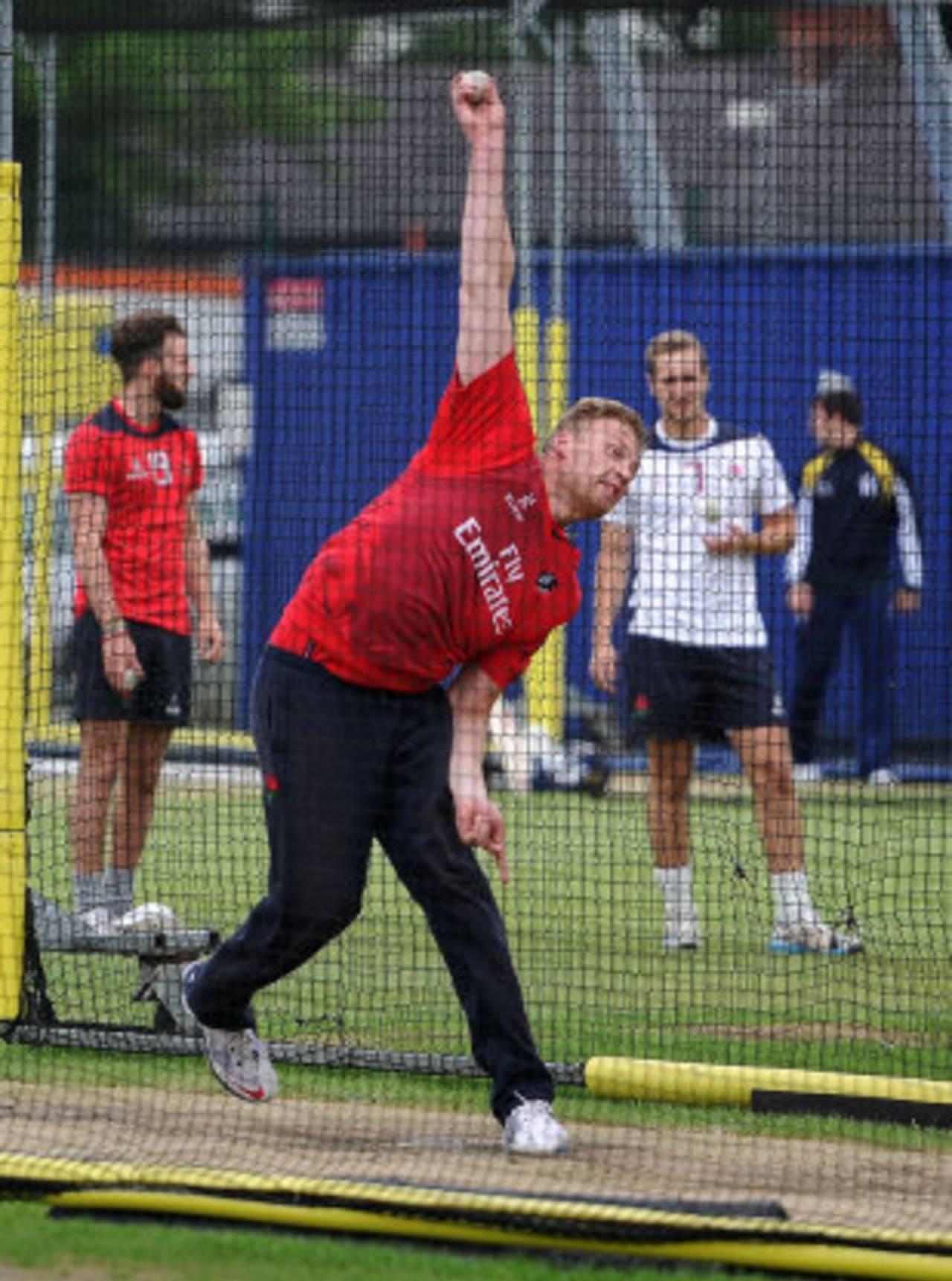Not a time for Flintoff cynicism
Andrew Flintoff deserves a chance to try and find out if he can still hack it, for his body was broken in the service of England
George Dobell
May 31, 2014, 9:53 AM

Andrew Flintoff deserves the chance to see whether he can still hack it • PA Photos
It would be easy to be cynical about the return of Andrew Flintoff. It would be easy to dismiss his comeback as a publicity stunt, or the symptom of a mid-life crisis. It would be easy, and probably quite legitimate, to point out that his return will displace a younger man in the Lancashire team who might have been working towards this opportunity his whole career.
But none of that stuff matters. Not really. Not in the grand scheme of things.
The purpose of the relaunched NatWest T20 Blast is to fill grounds and inspire new supporters and players. And the fact is that Flintoff, even aged 36 and nearly five years into retirement, remains one of very few Englishmen to have broken out of the confines of cricket to become something approaching a household name.
His return will guarantee wider media coverage for the tournament and should help bring more people to games. In the context of an event fighting for limelight amid a football World Cup and myriad other rivals, Flintoff's return is cause for celebration.
There is a lesson here, though. Flintoff's fame was cemented by his Man-of-the-Series winning performance in the Ashes of 2005; a series in which he bowled with pace and skill, batted with bravado and skill and showed the sort of grace in victory that portrayed the game in a flattering light.
But crucially, that Ashes series was the last shown on free to air TV in the UK. So while other players since have had periods of outstanding form, none have quite gone on to make the crossover from cricket to mainstream media personality. Flintoff's all-round excellence was one reason for his popularity and fame, but that fact that he had a larger stage and a bigger audience was also relevant.
The fear has to be that, for all the benefits of the finance pumped into the game by selling TV rights to one subscription broadcaster, it is almost impossible to replace the reach of a free to air coverage.
It is almost impossible the recapture the public imagination in the same way as it was in the summer of 2005. And for that reason, the English game is still looking for new heroes to replace those that have retired.
The interest generated by Flintoff's return only underlines the difficulty the modern game has in appealing to a new audience and remaining relevant. It also underlines the need the game has to exploit the stars it has; the failure of the ECB to fully utilise Kevin Pietersen this way remains a regret.
Who knows if Flintoff's body can handle the demands of a return? Who knows if his batting - so modest towards the end of his career - can prove destructive or his bowling rediscover the pace it once had? But, had his body not failed him, Flintoff would have been a T20 specialist long ago.
He deserves a chance to try and find out if he can still hack it, for his body was broken in the service of England. It was broken when bowling 40 overs in an innings against South Africa at Headingley in 2008; when bowling 68.3 overs in a match against Sri Lanka at Lord's in 2006. It was broken in finding one more spell, again and again, on the flattest of pitches and with the softest of balls, in helping England back to respectability after years of mediocrity.
He deserves a bit more credit than he is sometimes given. And, if there were times when he had to let off steam… well, all that bowling must have been thirsty work.
George Dobell is a senior correspondent at ESPNcricinfo